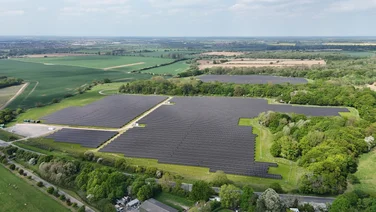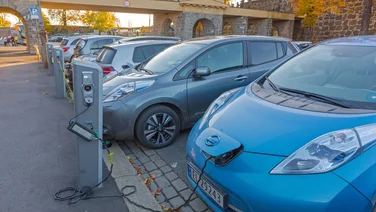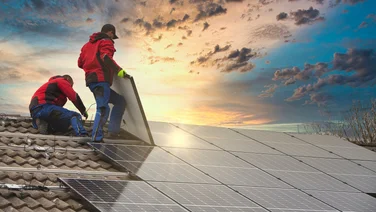We receive a small fee from trusted installers when you request a quote through our site. This helps us keep our content independent, well-researched and up to date – Learn more
- The Royal Horticultural Society has predicted a shift away from traditional bedding plants in favour of electric vehicles
- The forecasts draw on member enquiries, as well as show and garden trends
- The RHS also predicted a continued shift away from traditional bedding plants in favour of electric vehicles

Gardeners will be tearing up traditional planting choices with front gardens and urban areas reimagined for electric vehicles (EVs), according to the Royal Horticultural Society (RHS).
In its annual report looking at the year ahead, the RHS said more gardeners will look to adopt EV and EV chargers and a wider range of plants in towns and buildings.
Its predictions draw on member enquiries, show and garden trends, as well as unique industry insights to suggest what and how the UK’s 30 million gardeners will be growing in the year ahead.
Guy Barter, chief horticulturist at the RHS said that homeowners will “look for easy access landscape options for EV chargers” as the demand for EVs continues to boom.
He recommends permeable paving and gravel gardens flanked with low maintenance plants, as these are low cost and prevent pooling or run off of rainwater.
Additionally, the RHS also predicted a continued shift away from traditional bedding plants, like petunias and begonias, towards more long lived, less thirsty and robust varieties, particularly in community gardens and public landscapes.
The rest of the RSH’s gardening predictions are:
- Fruit trees and shrubs, as well as perennial vegetables will continue to grow in popularity owing to their reliable annual bounty, low maintenance and provision of shape, structure and habitat for wildlife.
- A growth in so called ‘sponge city’ capabilities as developers and councils increasingly cotton onto the broader benefits of planting spaces
- Plants will start to feature in towns and cities in more creative, but practical ways. Green roofs and walls will be sought out to provide all importance thermal regulation for buildings, reduce flooding and sewage spills by capturing and slowing the flow of water, boost habitat provision, filter the air within spaces and along polluted roads and be used to cool solar panels on roofs to ensure good functionality, known as hortivoltaics
- 9cm potted plants have proved popular in 2024, being cheaper than the standard 2 or 3L potted varieties and meaning gardeners can dabble with a greater variety of plants for the same price
Clare Matterson, director general, RSH, said gardeners are choosing plants “not only for the emotional response” but also the “broader environmental benefits”.








